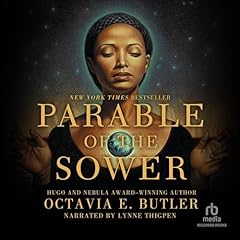
Strength in What Remains
Failed to add items
Sorry, we are unable to add the item because your shopping cart is already at capacity.
Add to Cart failed.
Please try again later
Add to Wish List failed.
Please try again later
Remove from wishlist failed.
Please try again later
Adding to library failed
Please try again
Follow podcast failed
Please try again
Unfollow podcast failed
Please try again
 Prime members: New to Audible?
Prime members: New to Audible?Get 2 free audiobooks during trial.
Pick 1 audiobook a month from our unmatched collection.
Unlimited access to our all-you-can listen catalog of 150K+ audiobooks and podcasts.
Access exclusive sales and deals.
Premium Plus auto-renews for $14.95/mo after 30 days. Cancel anytime.
Buy for $18.00
-
Narrated by:
-
Tracy Kidder
-
By:
-
Tracy Kidder
Deo arrives in America from Burundi in search of a new life. Having survived a civil war and genocide, plagued by horrific dreams, he lands at JFK airport with two hundred dollars, no English, and no contacts. He ekes out a precarious existence delivering groceries, living in Central Park, and learning English by reading dictionaries in bookstores. Then Deo begins to meet the strangers who will change his life, pointing him eventually in the direction of Columbia University, medical school, and a life devoted to healing. Kidder breaks new ground in telling this unforgettable story as he travels with Deo back over a turbulent life in search of meaning and forgiveness.
An extraordinary writer, Tracy Kidder once again shows us what it means to be fully human by telling a story about the heroism inherent in ordinary people, a story about a life based on hope.©2009 Tracy Kidder; (P)2009 Random House
Listeners also enjoyed...




















People who viewed this also viewed...










I am a huge fan of Traci Kidder and of his previous book...BUT...he was painful to listen to.
Nasal voice in an un-emotional mono-tonal drone...a pity....
Good book but...
Something went wrong. Please try again in a few minutes.
Moving and unforgettable
Something went wrong. Please try again in a few minutes.
The story of his beginning life in New York City is heart rending, but the chapters on the genocide are particularly frightening. Every skill Kidder has at hand is focused on this informative, enlightening story. The reader learns about communication, immigration, war, and many aspects of the human condition.
The compassion that Kidder has for his subject is clear. His characterizations are rich. Kidder does a wonderful job of reading his own book. I am going to buy copies for my friends this holidays.
Mr. Kidder, thank you for opening our eyes to Deo's plight and the horrors many face even in our own country.
My Favorite of Kidder's Books
Something went wrong. Please try again in a few minutes.
good parts.
Something went wrong. Please try again in a few minutes.
While the outer details of the life of Deo, a medical student in Burundi, are meticulously detailed, I never had a sense of his inner life, his interior construction; hence, he comes across as one-dimensional, as impressive as that dimension is. Then, the last third of the book, in which Deo, now a Columbia University graduate, makes a return journey to Rwanda and Burundi, accompanied by the author, is, quite frankly, boring, and adds nothing to the narrative in chief. Other readers have noted this also.
Quite a bit of the book is devoted to the many generous and dedicated Americans who helped Deo establish himself and thrive in the US. Their unselfish efforts on his behalf are as inspiring a tale as is Deo's escape from the genocide in Rwanda and Burundi, and they made me proud to be an American.
The author did an okay job of reading his book. I did not find his voice annoying, as one reviewer did. It was acceptable, but I think that the book would have gained from a professional reader.
Good, but not Great
Something went wrong. Please try again in a few minutes.


